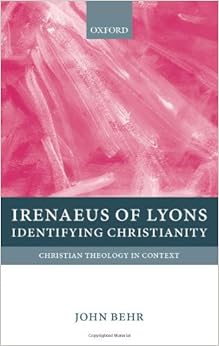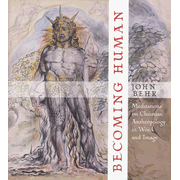Irenaeus of Lyons: Identifying Christianity
By Fr John Behr
Saint Vladimir's Seminary Press (2015)
ISBN: 0199214638
PricE: £18.99 (Amazon uk)
By Fr John Behr
Saint Vladimir's Seminary Press (2015)
ISBN: 0199214638
PricE: £18.99 (Amazon uk)
Being a Philosophy teacher, I run discussions and
evaluations into ‘The Theodicy of Irenaeus’ on a regular basis and when I do
so, it is always interesting to discover that those who write of this Theodicy know
little to nothing of the Saint himself and tend to echo more the works of John
Hick and other modern thinkers who appropriated what they saw as the works and
ideas of Irenaeus.
Dr John Behr’s work on St Irenaeus came highly recommended
as an introduction to the life and work of this saint, who has suffered a great
deal of neglect through the years due to being deemed as irrelevant to the
later theological debates by early modern writers and as a mere polemicist by
the more liberal voices in modern Theology. It is for this reason that such
research as that of Fr John Behr opens his life and work up to further research
in a fair manner, without simply using this Saint as a sidenote in a larger
discussion.
The book begins with an overview of the life of St Irenaeus
and the place of his work within the wider context of the Roman Christian
community at the time. This section is extremely detailed and beneficial to
understanding the life of Irenaeus and his relationships with other Christian
groups and writers of the time The structure of this section allows for
readability, splitting into sections to describe the various players in the
roman stage as well as Irenaeus’ interactions with them. This allows the reader
to come to grips with what was a highly complex and fragmented community at the
time.
Following this detailed overview, we are treated to an in depth
analysis of the first 2 books of Irenaeus’ most known text, Against Heresies. In
this section, Fr John Behr opens this famed work and breaks down its structure
in a way that allows the reader to understand its natural flow. This is
supported with excerpts from the text itself and an explanation of any
irregularities or ambiguities therein. After this section the same is done with
the last 3 books, demonstrating the natural split within the text. Both of
these sections contain detailed Theological analysis of the text and its
context, as well as a fair review of the work as a piece of personal writing
which allows us a greater understanding of Irenaeus himself as a Christian
writer of his period.
The book ends with a conclusion in which Fr John Behr
demonstrates his passion for Saint Irenaeus and emphasises his importance in
our understanding of the development of Orthodox Christianity and the Roman Christian
community of its time. It is at this point that you really come to grips with
the text and just how underplayed the Saint has been with regards to his role
in identifying Christianity and its progression.
A key strength of the book lies in the depth of Fr John Behr’s
analysis into the life and work of St Irenaeus. One only needs to look at the
author’s previous writing to see that this is Fr John’s labour of love. The
text itself contains a myriad of key historical and theological points which
are brought to light in the way that only someone who knows and appreciates his
topic can do. This made the book thoroughly readable on a personal level, as it
brought the Roman Christian life and the works of Irenaeus to life and caused
me to forget at times that I was reading a contextual study of a 2nd
century Christian writer.
A down side that I
would put on this text is that it is not a light read. Though extremely
readable to someone who understands the historical context of the work, it
could not be recommended to someone who simply wishes to know about St Irenaeus.
This point is a fairly obvious one due to the text being labelled ‘A contextual
study’ though it needs to be said that the text looks at this context at such a
depth that someone simply looking to find facts about Irenaeus may well miss
them.
Overall, I would recommend this text to anyone with an
interest in the period or who wishes to take on the works of Irenaeus with a
suitable guide to assist them on every step of the way.


